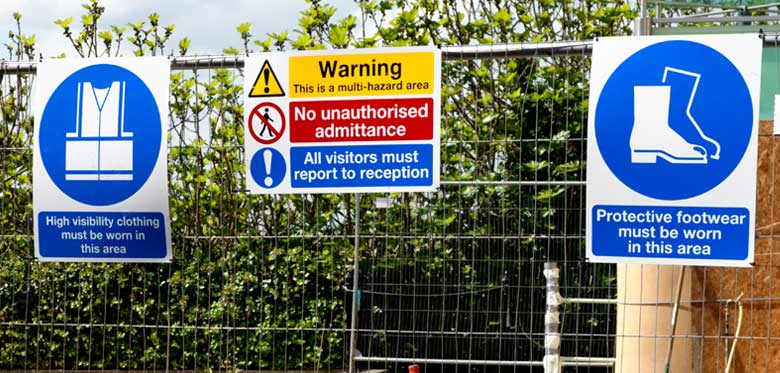PPE in health and safety stands for personal protective equipment and refers to the equipment, tools or clothing that are required to minimise the risk to individual workers from specific hazards related to their role or specific activities they undertake as part of their job.
In some settings, such as hospitals or other health environments, PPE such as gowns, masks, gloves and visors may be worn to protect both staff and patients and reduce the risks of infection or illnesses being passed from person to person. In other working environments, such as in construction or for jobs that require working at height, PPE could include things like steel toe-capped footwear, head protection and safety equipment like harnesses and ropes.
Why is PPE so important in health and safety?
Every type of job or industry has different risks or hazards that need to be taken into account in order to provide a safe environment for workers, visitors and members of the public. PPE can play a huge role in helping to minimise the risks or accidents, injuries or other harm that might occur in some types of work settings.
PPE is not used as an alternative to proper risk assessments and appropriate measures being taken to provide a safe working environment; it should only be used where risks remain after all reasonable controls and procedures have already been put in place.
If PPE is needed, the equipment used must meet current standards (in line with the Personal Protective Equipment (Enforcement) Regulations 2018) and these factors also need to be considered:
- How well the equipment suits the individual user e.g. Does it fit properly? How much does it weigh? Can the activities needed be carried out whilst they are using the PPE?
- Will there be multiple items of PPE needed? If so, how will these work together e.g. can safety glasses be used with protective head equipment and/or respirator masks without compromising any piece of the equipment and the protection they offer?
- What training will be required for using the PPE? What limitations are there to the equipment that the people using it will need to be aware of?
What happens if appropriate PPE is not provided?
If your business has employees who provide functions that require PPE and you have not provided them with the appropriate equipment to help keep them safe and minimise the hazards they face as part of their job, you can be held legally liable if there is an accident or if you are reported to the authorities and a HSE investigation finds that you are breaking health and safety regulations.
If you are prosecuted for breaching health and safety law, you face potentially unlimited fines and even run the risk of a prison sentence if the prosecution is successful.
As experienced health and safety solicitors, we can offer specialist support for any business wanting to ensure they have the appropriate policy, measures and PPE in place to be compliant with UK health and safety laws. Call our health and safety team on 0161 696 6250 to find out more.



Comments